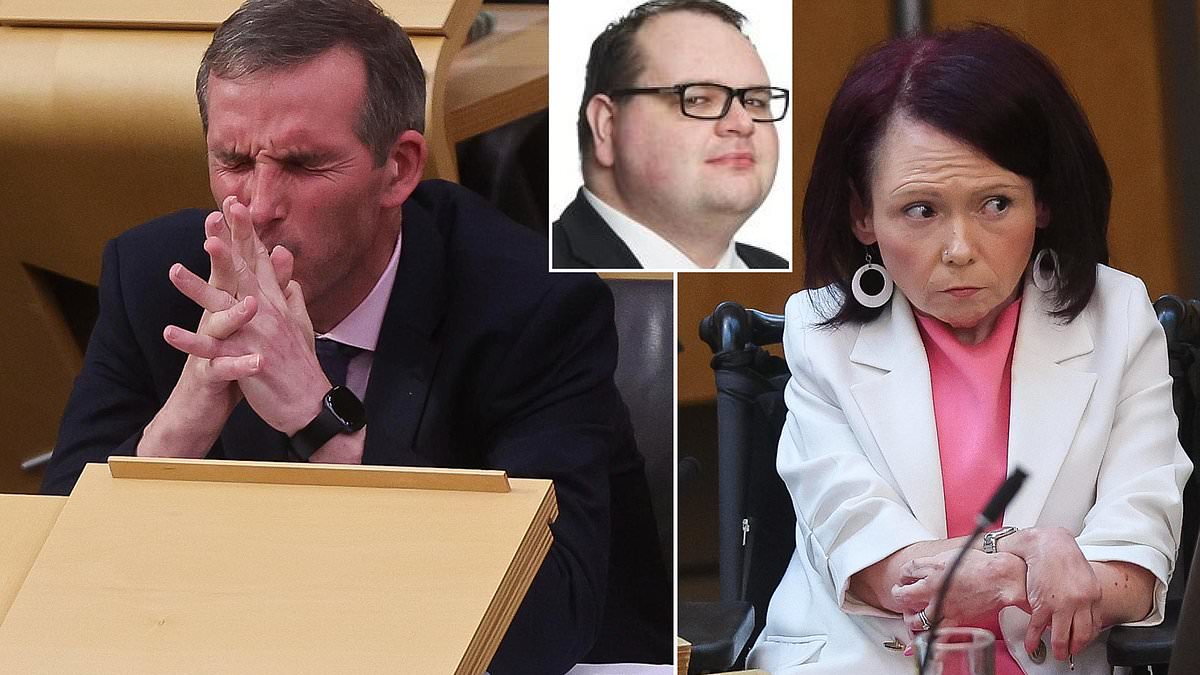Liam McArthur is a Liberal Democrat and therefore a fundamentally inoffensive chap. Owlish and earnest, firm but polite, he has the demeanour of a librarian. Every time he speaks, I worry that I might have overdue books.
But because he’s a Lib Dem he is also invincibly certain. Not obnoxiously certain — he’s not a Green, after all — but serenely secure in his belief that the world is an enlightened place, where everyone has good intentions, institutions can be trusted, and law is the reliable guarantor of process.
It was in this spirit that he opened the Stage 1 debate on his Assisted Dying Bill. He wished for a reasonable and respectful exchange and urged doubters to give him a chance to better the legislation at the next stage.
McArthur demonstrated his fluency in the language of contemporary liberalism with its promises of consent, choice, and autonomy. Nowadays, even death must be human rights compliant.
Among those in favour of McArthur’s Bill, the two hardest-hitting contributions came from Nationalist MSPs Elena Whitham and George Adam.
Whitham, a scrunched up tissue gripped in her hand, described how her mother Irene starved herself to death in 2014 after being diagnosed with terminal cancer aged 58. She took two weeks to die.
‘My mum deserved to plan a compassionate death, surrounded by her family, not one she had to conduct in secret,’ Whitham told MSPs, in a defiance-hardened voice.
Her words set off an audible chain of sniffles.
Her colleague, Adam, spoke of his wife Stacey, who has multiple sclerosis. Adam is a gallus, cheery fellow, and watching him pause to gird his emotions — without much success — was an odd experience.
He admitted that he couldn’t bring himself to agree to assisted dying for Stacey for ‘selfish’ reasons, and that is why it was right that it be Stacey’s choice.
It was not something they needed now, but they might need it in the future.
His contribution drew applause from across the chamber and both sides of the issue. It was one of the rawest, most personal speeches I have ever seen given at Holyrood. McArthur quipped that Adam was ‘a snottery wreck’.
Among those opposed, the interventions were no less poignant.
Labour MSP Pam Duncan-Glancy raised the risk that disabled people like her, already made to feel like a burden on society, would come under pressure to end their lives. Haltingly, and choking back tears, she told how during Covid she and her husband were so scared that medics wouldn’t bother trying to revive them that they wrote notes to each other saying, ‘Please resuscitate me.’
In closing, she pleaded with her colleagues for her life and those of people like her: ‘Rather than legislate to assist people to die, let us legislate to assist people to live.’
The Tories’ Edward Mountain drew on his background as a soldier and his experience of cancer to inform his views on death.
Like Duncan-Glancy, he believed parliament should be in the business of improving life, not making it easier to terminate.
While others warned of coercion, he invited us to consider ‘passive coercion’, such as poor provision of palliative care services. That anyone found themselves in this scenario, and felt driven to assisted suicide, was itself a form of coercion.
Hour after hour, MSPs poured out their hearts and dabbed their eyes, and it was difficult to watch, especially if you had lost someone truly close to you in a slow, agonising fashion.
Yet the contribution that shed the most light was not a tear-stained testimony but a steady, sober analysis.
Murdo Fraser cautioned that McArthur’s Bill was ‘the opening of the door to more widely available assisted dying than we are currently legislating for’.
‘The slippery slope,’ he assured Holyrood, ‘is real’. Assisted suicide was lobbied for by articulate people with high social capital but it would also apply to the poor, the vulnerable and ‘those more susceptible to coercion’. Create a right for one and you create a risk for the other.
Come decision time, MSPs backed the Bill 70 votes to 56 with one abstention. The Bill goes forward and assisted suicide will now become a fiercely fought battle over the meaning of life and death in Scotland.
